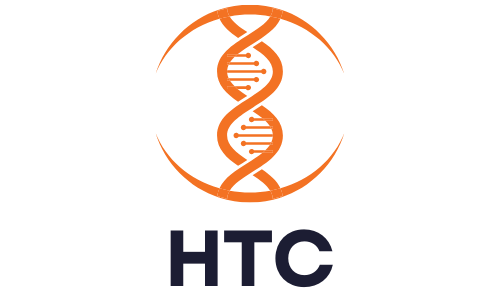The Role of Big Data in HealthTech Investments
In today's rapidly evolving healthcare landscape, the intersection of Big Data and HealthTech represents a groundbreaking paradigm shift. As vast amounts of health-related data become increasingly accessible, the potential to transform patient care, enhance operational efficiency, and drive innovation within the health sector has never been more significant. Big Data's integration into HealthTech is not merely a technological advancement; it's a fundamental change in how healthcare providers, patients, and investors approach health solutions.
Investments in HealthTech are crucial for several reasons. Firstly, they drive the development and deployment of innovative technologies that improve patient outcomes and streamline healthcare delivery. Secondly, they support the creation of data-driven solutions that enhance decision-making processes for healthcare professionals and policymakers. Finally, these investments play a vital role in addressing the financial sustainability of healthcare systems by optimizing resource allocation and reducing overall costs.
The purpose of this blog is to delve into how Big Data is shaping the landscape of HealthTech investments. By examining the ways in which data analytics, machine learning, and artificial intelligence are being leveraged to create value, we aim to provide insights into the current trends and future directions of this dynamic field. Understanding the influence of Big Data on HealthTech investments will equip investors with the knowledge needed to make informed decisions in this burgeoning market.
Understanding Big Data in HealthTech
Big Data in healthcare refers to the extensive volume of data generated from various sources within the healthcare ecosystem. This data is characterized by its high volume, velocity, variety, and veracity, making traditional data processing methods inadequate. Instead, advanced data analytics and machine learning techniques are employed to harness the full potential of this information. The key components of Big Data in healthcare include data acquisition, storage, analysis, and interpretation, each playing a crucial role in transforming raw data into actionable insights.
Types of Data Involved
The healthcare sector generates diverse types of data, each contributing to a comprehensive understanding of patient health and system efficiency:
- Clinical Data: This encompasses electronic health records (EHRs), lab results, imaging data, and physician notes. Clinical data provides detailed insights into patient histories, diagnoses, treatments, and outcomes, forming the backbone of personalized medicine and patient care.
- Genomic Data: Genomic sequencing and other 'omics' technologies generate vast datasets that reveal the genetic underpinnings of diseases. This data is critical for developing targeted therapies and understanding the genetic basis of health conditions.
- Patient-Generated Data: With the rise of wearable technology and health apps, patients now contribute data on their daily activities, vitals, and symptoms. This real-time information offers a more holistic view of patient health and supports proactive management of chronic diseases.
The Role of Data Analytics and Machine Learning
Data analytics and machine learning are pivotal in extracting meaningful insights from Big Data. By applying sophisticated algorithms, these technologies can identify patterns, predict outcomes, and suggest interventions with unprecedented accuracy and speed. Key applications include:
- Predictive Analytics: Predictive models can forecast disease outbreaks, patient admissions, and potential complications, enabling healthcare providers to allocate resources more effectively and improve patient care.
- Personalized Medicine: Machine learning algorithms analyze genomic and clinical data to tailor treatments to individual patients, enhancing the efficacy of interventions and reducing adverse effects.
- Operational Efficiency: Data analytics optimize hospital operations by streamlining workflows, reducing wait times, and managing supply chains, ultimately lowering costs and improving service delivery.
By leveraging the capabilities of Big Data, HealthTech innovations are not only enhancing patient outcomes but also creating new investment opportunities. The synergy between data and technology is driving the next wave of healthcare transformation, making it an exciting time for investors to engage with this sector. In the next sections, we will explore specific investment opportunities and how Big Data continues to shape the future of HealthTech.
The HealthTech Investment Landscape
Current Trends in HealthTech Investments
HealthTech investments have seen a remarkable surge in recent years, driven by advancements in technology, an increased focus on personalized medicine, and a growing demand for efficient healthcare solutions. Key trends shaping the HealthTech investment landscape include:
- Telemedicine and Remote Monitoring: The COVID-19 pandemic accelerated the adoption of telemedicine and remote patient monitoring solutions. Investments in these areas have soared as healthcare systems and patients embrace the convenience and accessibility of virtual care.
- AI and Machine Learning: AI-powered solutions are transforming diagnostics, treatment planning, and patient care. From predictive analytics to personalized medicine, AI is a hotbed of investment activity, attracting significant capital from various investors.
- Wearable Technology: Wearables, such as fitness trackers and smartwatches, are gaining popularity for their ability to collect real-time health data. Investments in wearable technology are driving innovations in preventive care and chronic disease management.
- Genomics and Precision Medicine: Genomic sequencing and precision medicine are at the forefront of personalized healthcare. Investments in this area focus on developing targeted therapies and understanding the genetic basis of diseases, offering promising returns.
- Data Security and Privacy: With the increasing amount of health data being generated and shared, ensuring data security and privacy is paramount. Investments in cybersecurity solutions for healthcare are rising to protect sensitive patient information.
Key Players in the Market
The HealthTech investment landscape is populated by a diverse array of players, each contributing to the growth and innovation of the sector:
- Venture Capitalists (VCs): VCs are a driving force behind early-stage HealthTech startups, providing the necessary capital and expertise to bring innovative ideas to market. Notable VC firms in the HealthTech space include Andreessen Horowitz, Sequoia Capital, and Khosla Ventures.
- Private Equity Firms: These firms invest in more mature HealthTech companies, focusing on scaling operations and expanding market reach. Prominent private equity players like Blackstone and TPG Capital are actively investing in the HealthTech sector.
- Corporate Investors: Established healthcare and technology companies, such as Google, Amazon, and Johnson & Johnson, are making strategic investments in HealthTech startups to stay ahead of the innovation curve and integrate cutting-edge technologies into their operations.
Notable HealthTech Startups and Their Funding Rounds
Several HealthTech startups have garnered significant attention and funding, reflecting the high investor confidence in their potential to disrupt the healthcare industry:
- 23andMe: A pioneer in consumer genetics and personalized medicine, 23andMe has raised over $868 million in funding. The company provides genetic testing services directly to consumers, enabling personalized health insights.
- Teladoc Health: As a leader in telemedicine, Teladoc Health offers virtual healthcare services to millions of patients worldwide. The company has raised over $1 billion in funding and continues to expand its service offerings and global reach.
- Grail: Specializing in early cancer detection, Grail has developed a multi-cancer early detection test that analyzes genomic data. The startup has raised over $2 billion in funding, reflecting the high stakes and potential impact of its technology.
- Livongo: Acquired by Teladoc Health in 2020, Livongo focuses on chronic disease management through digital health solutions. The company raised over $235 million in funding before its acquisition, demonstrating the value of integrated HealthTech solutions.
- Tempus: Tempus is a technology company that uses artificial intelligence to analyze clinical and molecular data for personalized cancer treatment. The company has raised over $1 billion in funding, underscoring the critical role of AI in precision medicine.
As these examples illustrate, the HealthTech sector is ripe with opportunities for investors. By understanding the current trends, key players, and notable startups, investors can make informed decisions and strategically position themselves in this dynamic market. In the next section, we will explore how Big Data specifically influences these investment opportunities and shapes the future of HealthTech.
The Impact of Big Data on Investment Decisions
How Big Data Drives Innovation and Market Opportunities
Big Data is a catalyst for innovation in HealthTech, creating numerous market opportunities that attract significant investment. By harnessing the power of data analytics, machine learning, and AI, startups and established companies can develop solutions that address some of the most pressing challenges in healthcare. Big Data enables:
- Enhanced Predictive Capabilities: Big Data analytics can predict patient outcomes, disease outbreaks, and treatment efficacy, allowing healthcare providers to make informed decisions and improve patient care. This predictive power is particularly attractive to investors looking for solutions that can drive better health outcomes and reduce costs.
- Personalized Medicine: By analyzing large datasets, including genomic information, companies can tailor treatments to individual patients, increasing the effectiveness of therapies and minimizing adverse effects. Personalized medicine represents a significant growth area, with Big Data playing a central role in its development.
- Operational Efficiency: Big Data helps healthcare organizations optimize their operations, from patient flow management to supply chain logistics. Solutions that improve efficiency and reduce costs are highly attractive to investors, as they offer clear ROI and scalability.
- New Business Models: The insights generated from Big Data can lead to the creation of new business models in healthcare, such as value-based care and outcome-based pricing. These models align financial incentives with patient outcomes, attracting investment from stakeholders interested in sustainable healthcare innovations.
Examples of Data-Driven Startups Attracting Significant Investments
Several startups are leveraging Big Data to drive innovation and secure substantial investments:
- Flatiron Health: Acquired by Roche for $1.9 billion, Flatiron Health uses Big Data analytics to improve cancer treatment. The company's platform aggregates and analyzes clinical and real-world data to help oncologists make better treatment decisions.
- Zebra Medical Vision: This AI-powered medical imaging startup has raised over $50 million in funding. Zebra Medical Vision uses Big Data to develop algorithms that assist radiologists in diagnosing diseases from medical imaging, improving accuracy and speed.
- Health Catalyst: Specializing in healthcare data warehousing and analytics, Health Catalyst has raised over $477 million. The company provides a platform that enables healthcare organizations to aggregate, analyze, and act on their data to improve outcomes and efficiency.
Case Studies of Successful HealthTech Companies Leveraging Big Data
- Tempus: Tempus uses Big Data and AI to advance precision medicine, particularly in oncology. The company collects and analyzes clinical and molecular data to provide personalized treatment recommendations. With over $1 billion in funding, Tempus has partnered with leading academic institutions and healthcare organizations to enhance cancer care.
- Guardant Health: A pioneer in liquid biopsy technology, Guardant Health uses Big Data to detect and monitor cancer through blood tests. The company's platform analyzes genomic data to identify cancer mutations and guide treatment decisions. Guardant Health has raised over $550 million and went public in 2018, demonstrating the value of its data-driven approach.
- Verily Life Sciences: A subsidiary of Alphabet Inc., Verily leverages Big Data to tackle various health challenges, from chronic diseases to population health management. The company's projects include the Baseline Study, which aims to collect comprehensive health data to understand disease progression. Verily has raised over $1.8 billion in funding, showcasing the significant investment potential in data-driven HealthTech solutions.
- Notable Labs: Notable Labs is revolutionizing precision medicine by leveraging Big Data and AI to predict patient outcomes and optimize treatment strategies. Their platform integrates clinical trial data, patient histories, and genomic information to deliver personalized therapeutic recommendations. Notable Labs has successfully raised significant funding, reflecting the high confidence investors have in their data-driven approach to improving patient care and treatment efficacy.
By driving innovation, improving patient outcomes, and creating new business models, Big Data is reshaping the HealthTech investment landscape. Investors are increasingly drawn to startups and companies that effectively harness the power of data to deliver transformative healthcare solutions. In the next section, we will discuss the future outlook for Big Data in HealthTech investments and how investors can strategically position themselves to capitalize on these opportunities.
Risk Assessment and Management
Challenges and Risks Associated with Investing in Big Data-Driven HealthTech
While Big Data offers immense potential for innovation and growth in the HealthTech sector, it also presents several challenges and risks that investors must carefully consider:
- Data Privacy and Security: The collection and analysis of vast amounts of sensitive health data raise significant privacy and security concerns. Breaches can lead to severe financial and reputational damage, making data protection a critical focus for HealthTech companies.
- Data Quality and Integration: Ensuring the accuracy, completeness, and consistency of data from diverse sources is challenging. Poor data quality can lead to incorrect analyses and suboptimal decision-making, affecting the efficacy of HealthTech solutions.
- Regulatory Compliance: Navigating the complex landscape of healthcare regulations is essential for Big Data-driven HealthTech companies. Non-compliance with regulations such as HIPAA in the U.S. or GDPR in Europe can result in hefty fines and legal issues.
- Technological Complexity: Developing and maintaining sophisticated Big Data analytics and AI systems require substantial technical expertise and resources. The rapid pace of technological advancements also means that companies must continuously innovate to stay competitive.
- Market and Adoption Risks: Even the most advanced HealthTech solutions face market adoption risks. Healthcare providers, patients, and payers must be willing to adopt and integrate new technologies into their practices, which can be a slow and challenging process.
Strategies for Mitigating Risks
To address these challenges and manage risks effectively, investors and HealthTech companies can adopt several strategies:
- Robust Data Governance: Implementing strong data governance frameworks ensures that data is managed, protected, and used responsibly. This includes establishing clear policies for data collection, storage, access, and sharing.
- Advanced Security Measures: Investing in state-of-the-art cybersecurity technologies and practices is essential to protect sensitive health data. Regular security audits, encryption, and multi-factor authentication are critical components of a robust security strategy.
- Regulatory Expertise: Engaging legal and regulatory experts can help HealthTech companies navigate the complex regulatory environment. Staying informed about changes in regulations and ensuring compliance from the outset can mitigate legal risks.
- Quality Data Management: Implementing rigorous data quality management practices ensures the integrity and reliability of data. This includes data validation, cleaning, and integration processes to maintain high-quality datasets.
- Collaborations and Partnerships: Forming strategic partnerships with established healthcare providers, technology companies, and research institutions can enhance credibility and facilitate market adoption. Collaborations also provide access to valuable resources and expertise.
Regulatory Considerations and Compliance
Compliance with healthcare regulations is paramount for Big Data-driven HealthTech companies. Key regulatory considerations include:
- HIPAA (Health Insurance Portability and Accountability Act): In the U.S., HIPAA sets national standards for the protection of health information. HealthTech companies must implement safeguards to ensure the confidentiality, integrity, and availability of patient data.
- GDPR (General Data Protection Regulation): In Europe, GDPR governs the processing of personal data, including health information. Companies must obtain explicit consent from individuals for data collection and processing and ensure data protection measures are in place.
- FDA (Food and Drug Administration): HealthTech solutions, particularly those involving medical devices and software, may require FDA approval. Compliance with FDA regulations ensures the safety and efficacy of these products.
- Data Localization Laws: Some countries have data localization requirements, mandating that health data be stored and processed within national borders. HealthTech companies must be aware of and comply with these laws to avoid legal issues.
By understanding and addressing these challenges and regulatory requirements, investors can make informed decisions and support the growth of Big Data-driven HealthTech companies. In the concluding section, we will discuss the future outlook for Big Data in HealthTech investments and how stakeholders can capitalize on emerging opportunities.
Future Trends and Predictions
Emerging Technologies and Their Potential Impact on HealthTech Investments
The HealthTech sector is continuously evolving, with several emerging technologies poised to further revolutionize healthcare and create new investment opportunities:
- Blockchain Technology: Blockchain offers secure, transparent, and immutable record-keeping, which is crucial for managing health data and ensuring patient privacy. By providing a decentralized platform for data exchange, blockchain can enhance interoperability between healthcare systems and reduce fraud. Investments in blockchain-based HealthTech solutions are expected to rise as the technology matures.
- Internet of Things (IoT): IoT devices, including wearables, smart medical devices, and home health monitoring systems, generate vast amounts of real-time data. These devices can provide continuous health monitoring and early detection of medical conditions. Investment in IoT technology is expected to grow, driven by the demand for personalized and preventive healthcare solutions.
- Telehealth Expansion: Beyond traditional telemedicine, telehealth will expand to include remote diagnostics, virtual reality for therapy and rehabilitation, and remote surgeries using robotic systems. These advancements will make healthcare more accessible and reduce the burden on healthcare facilities. Investors will find opportunities in companies that innovate within this expanding telehealth ecosystem.
- Genomics and CRISPR: Advances in genomic sequencing and CRISPR gene-editing technology will lead to groundbreaking treatments and personalized medicine approaches. Investments in startups and companies that specialize in genomics and gene therapy are likely to increase as these technologies become more prevalent in clinical applications.
The Evolving Role of Artificial Intelligence and Predictive Analytics
Artificial intelligence (AI) and predictive analytics are becoming increasingly integral to the HealthTech sector, driving significant advancements:
- Enhanced Diagnostics: AI algorithms are improving the accuracy and speed of diagnostics in fields such as radiology, pathology, and dermatology. Predictive analytics can help identify patients at risk of developing certain conditions, enabling early interventions. Investment in AI-driven diagnostic tools is set to grow as these technologies prove their efficacy.
- Drug Discovery and Development: AI is transforming the drug discovery process by analyzing vast datasets to identify potential drug candidates and predict their effectiveness. This accelerates the development of new treatments and reduces costs. Investors are increasingly interested in companies that leverage AI for pharmaceutical research and development.
- Operational Efficiency: Predictive analytics optimize hospital operations, from scheduling to resource allocation, by forecasting demand and identifying bottlenecks. Investments in AI solutions that enhance operational efficiency are expected to rise as healthcare providers seek to improve their services and reduce costs.
- Patient Engagement and Adherence: AI-powered chatbots and virtual health assistants provide personalized health advice and reminders, improving patient engagement and adherence to treatment plans. This leads to better health outcomes and reduced healthcare costs, making these solutions attractive to investors.
Predictions for the Future of Big Data in HealthTech
The future of Big Data in HealthTech holds immense promise, with several key predictions shaping the investment landscape:
- Increased Personalization: Healthcare will become increasingly personalized, with treatments and interventions tailored to individual genetic profiles, lifestyles, and preferences. Big Data will play a central role in enabling this level of customization, driving demand for data-driven HealthTech solutions.
- Proactive Healthcare: The focus will shift from reactive to proactive healthcare, with an emphasis on prevention and early intervention. Predictive analytics will identify risk factors and potential health issues before they become serious, reducing the overall burden on healthcare systems and improving patient outcomes.
- Data Interoperability: Efforts to improve data interoperability across healthcare systems will gain momentum. Seamless data exchange will enhance care coordination, reduce redundancies, and enable comprehensive patient care. Investments in technologies that facilitate interoperability will be critical.
- Ethical and Responsible AI: As AI becomes more prevalent in healthcare, there will be a growing emphasis on ethical considerations, transparency, and fairness. Investors will prioritize companies that adopt responsible AI practices and comply with ethical standards.
- Expansion of Digital Health Ecosystems: Digital health ecosystems, encompassing telehealth, remote monitoring, and digital therapeutics, will continue to expand. These ecosystems will provide integrated, holistic care solutions, attracting substantial investment.
In conclusion, the integration of Big Data in HealthTech is set to drive transformative changes in the healthcare industry. By staying abreast of emerging technologies, understanding the evolving role of AI and predictive analytics, and anticipating future trends, investors can strategically position themselves to capitalize on the vast opportunities within this dynamic sector. The future of HealthTech, powered by Big Data, promises to deliver more efficient, personalized, and proactive healthcare solutions, ultimately improving health outcomes and enhancing the quality of life for patients worldwide.
Recap of the main points discussed
In this blog, we have explored the pivotal role of Big Data in shaping the HealthTech investment landscape, highlighting its profound impact on innovation, efficiency, and patient care. Here’s a recap of the main points discussed:
- Introduction to Big Data in HealthTech: We introduced the concept of Big Data and its integration into HealthTech, emphasizing its transformative potential and the importance of investments in this space.
- Understanding Big Data in HealthTech: We defined Big Data in healthcare, outlined its key components, and discussed the types of data involved, including clinical, genomic, and patient-generated data. We also explored the crucial role of data analytics and machine learning in leveraging this data to drive healthcare innovation.
- The HealthTech Investment Landscape: We examined current trends in HealthTech investments, identified key players in the market such as venture capitalists, private equity firms, and corporate investors, and highlighted notable HealthTech startups and their funding rounds.
- The Impact of Big Data on Investment Decisions: We discussed how Big Data drives innovation and market opportunities, provided examples of data-driven startups attracting significant investments, and presented case studies of successful HealthTech companies leveraging Big Data.
- Risk Assessment and Management: We addressed the challenges and risks associated with investing in Big Data-driven HealthTech, including data privacy and security concerns, data quality issues, regulatory compliance, and market adoption risks. We also outlined strategies for mitigating these risks and ensuring regulatory compliance.
- Future Trends and Predictions: We looked at emerging technologies and their potential impact on HealthTech investments, such as blockchain, IoT, and advancements in genomics. We discussed the evolving role of AI and predictive analytics in enhancing diagnostics, drug discovery, operational efficiency, and patient engagement. Finally, we provided predictions for the future of Big Data in HealthTech, emphasizing increased personalization, proactive healthcare, data interoperability, ethical AI, and the expansion of digital health ecosystems.
By understanding these key points, investors can navigate the complexities of the HealthTech sector and make informed decisions to capitalize on the vast opportunities presented by Big Data. As technology continues to advance and the healthcare landscape evolves, the strategic integration of Big Data will be crucial in driving innovation, improving patient outcomes, and shaping the future of healthcare.










